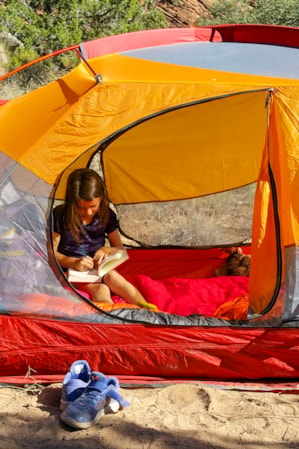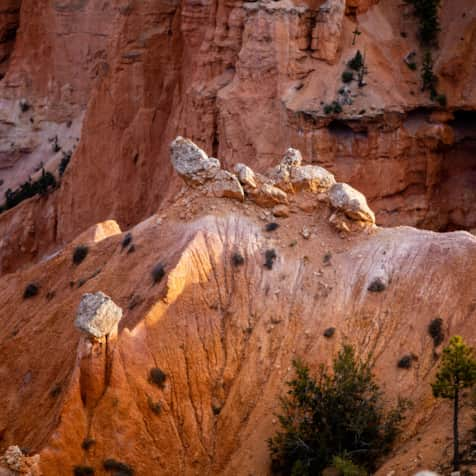Field Notes: Backpacking With Children

Create a positive memory.
My kids remember every detail about every bad experience they have ever had with me, and they take every opportunity to remind me about it. Do everything you can to make sure the trip (especially their first) is a positive one for your little ones.
Choose the destination and route carefully.
There are a surprising number of attributes that a good kids’ backpack route needs to have. It should be short enough that you’re not stressed about moving too fast. It should be relatively flat (my kids wince at the slightest hill). It should not be too hot or cold. It should have contingencies for making camp early, or even turning around and going back to the car and driving to a motel. Allow you and your child to focus on the parts that will be fun to them and don’t bite off more than you can chew.
Plant seeds for life skills.
Backpacking is largely about responsibility: carrying your own stuff, keeping a light footprint and managing your time. Figure out ways to impart these lessons, but with a light touch, without overwhelming or annoying. This can include having them pack and carry their own pack (regardless of what is inside); manage their personal items; make sure no litter is left behind (or picking up litter they see along the way); help you pick and set up the campsite; and help you cook a meal.
Go slowly and observe the details.
One reason to pick a short trail is so that you can move slowly and point out the details of a landscape. If your kids are learning about nature in school, try to connect what they’re learning to what you’re seeing, whether it’s the plants, animals, geology or human impact you encounter.
Listen to them and let them play.
Pay attention to how your child sees the place you’re walking. If he or she wants to stop and climb a rock or play in the sand, see where it goes. Make sure you have a loose framework for your trip to accommodate this kind of stuff.
Have some diversions in your back pocket.
There will probably come a time when the kids are bored with nature. It’s not a bad idea to have some diversions for the down time or on the walk. These can include riddles or games, as well as balls or other toys.
Safety first.
Cliffs! Raging rivers! Wildlife! Flash floods! Prickly pears! Don’t let any of these threats prevent you from venturing out, but have a plan for all of them.









